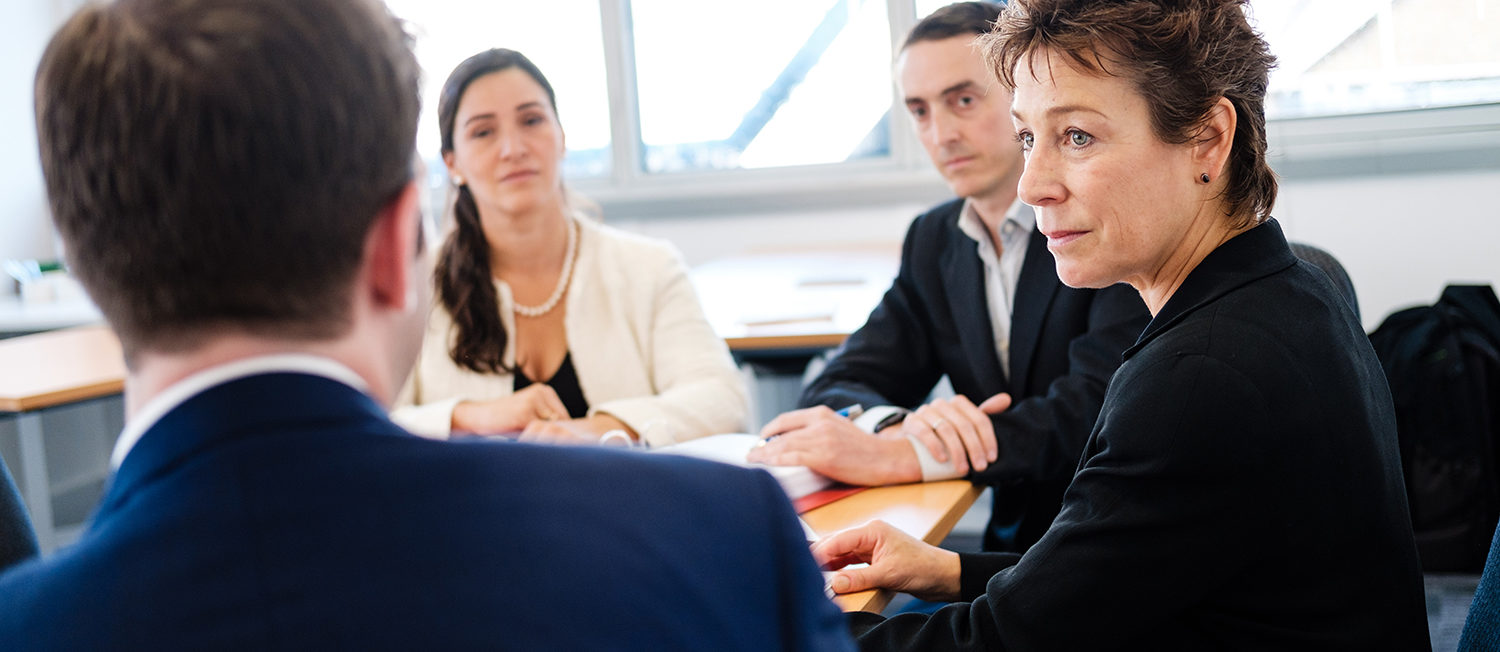Five Key Skills You Learn on CEDR’s Accredited Mediator Skills Training
by Susanne Schuler
Whether you are thinking of becoming a CEDR-Accredited Mediator yourself or looking to upskill your team or department, you might rightly wonder, what are the key skills you and/or your colleagues will learn?
Well, here they are:
- Active Listening Skills
- Managing Emotions
- Effective Information Exchange
- Challenging Parties & Reality Testing
- Working with a Flexible Framework
I should say these aren’t the only things you will learn, but the headline skills.
1. Active Listening Skills
Our starting point is to ask people, “When were you taught to listen?”
The reality is, we were all taught to talk but not taught to listen.
Active Listening skills, paraphrasing, summarizing and reframing are techniques which enable you to build rapport, manage difficult situations and extract information from the other side.
The ultimate aim is to move beyond a superficial level of information and explore what are peoples’ real beliefs, aims, desires, worries, interests and fears.
Armed with this information, you can be much more strategic, influential and persuasive when it comes to your turn to do the talking.
2. Managing Emotions
Closely linked to ‘Active Listening’ is the ability to manage and work with emotions.
Behavioural psychology tells us that our actions precede our reasons.
This is despite us believing that we think, then reason and then act.
It is a mistake to see ourselves as purely rational beings who can separate our emotions from our decision-making.
Whether it is a dispute with a loved one or a multi-million-pound deal, emotions are at play.
Therefore, we teach you techniques in order to recognise and engage with emotions rather than fear or avoid them.
3. Effective Information Exchange
Mediating, whether formally or informally, is a facilitation process.
This means you will listen (actively) to different parties and stakeholders who will all share with you information.
Most of that information will be confidential, therefore you have to help those involved share it with each other in a sensitive, timely and strategic way.
Either you will be tasked with sharing the information yourself, or you will work with and coach them on how to frame messages, information and offers effectively.
This is a skill we focus on heavily during the extensive roleplaying on the course.
4. Challenging Parties & Reality Testing
When mediating, this is an incredibly important skill.
It has great applicability in a commercial setting, whether with colleagues or clients.
This skill is fundamentally about being able to challenge people on their stated position(s), getting them to see a broader view of the issue(s) and helping them take a more realistic and strategic view of the conflict or deal.
The challenge of mastering this competence is, to deploy it in a way that is robust and firm but doesn’t harm the relationship, but even enhances it. Our conflict and mediation experts help people to achieve that.
Without giving people the ‘answer’, you help them move closer to solving problems and devising, creative and effective solutions.
5. Working with a Flexible Framework
Alongside individual skills, we also teach you the flexible CEDR framework.
Its flexibility means it has universal applicability to any difficult situation you find yourself in, whether mediating or having a difficult conversation with a colleague or client.
The framework gives you a process you can rely and fall back on, particularly if the situation is complex and potentially spiralling out of control.
It helps you understand what approach and skills are needed in the moment whilst giving you comfort, confidence and control.



